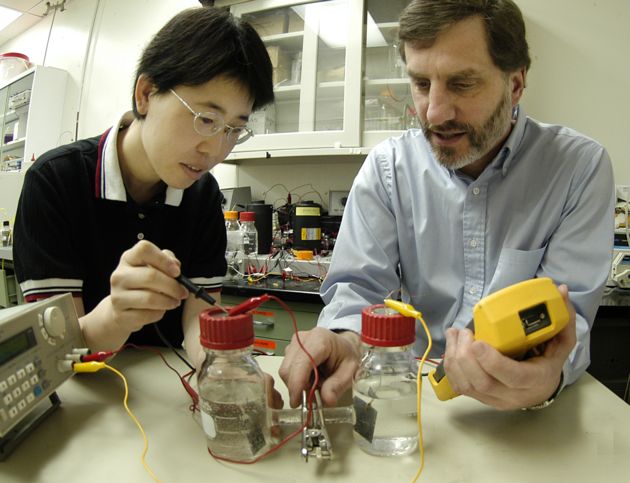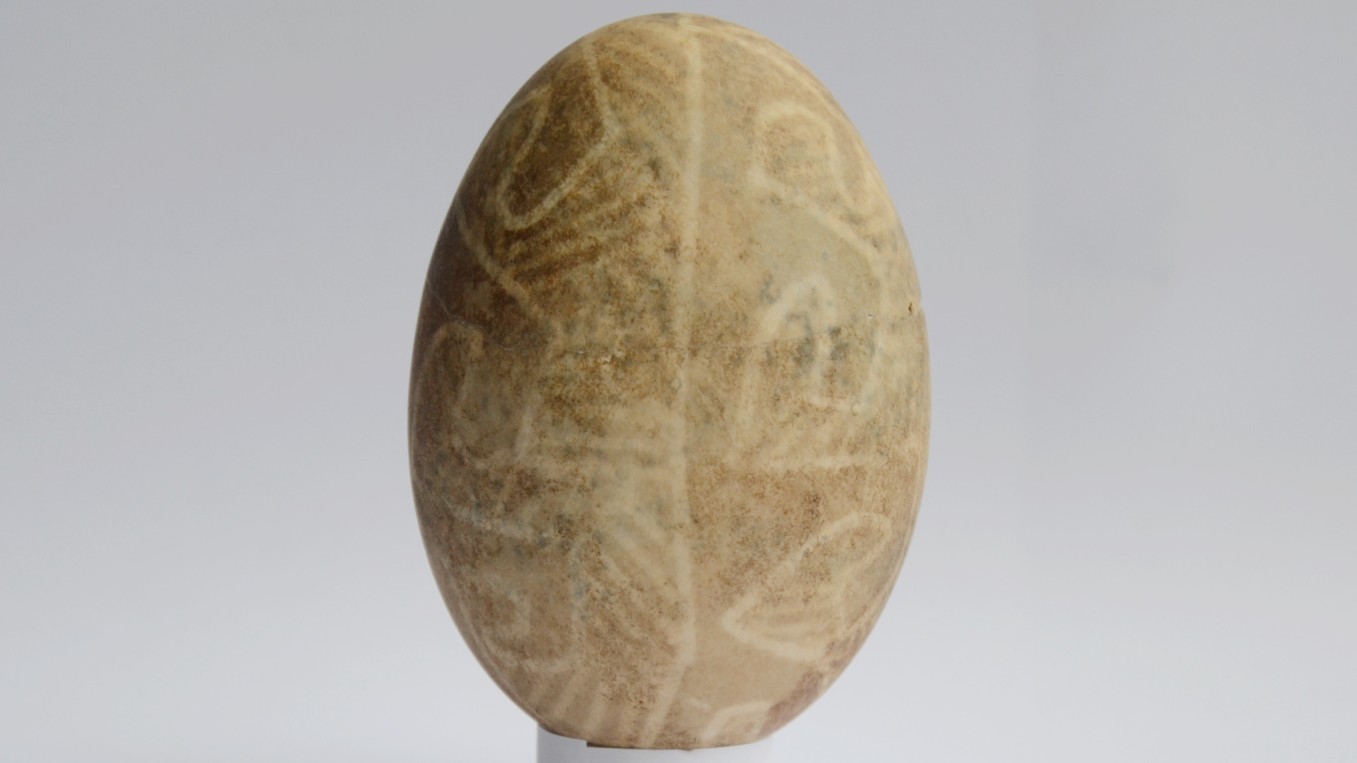Jolted Bacteria Make Hydrogen from Human Waste

A newly developed process that uses bacteria to consume human waste and other biomass produces four times more hydrogen than previous efforts.
Some scientists and politicians envision an economy of the future fueled by hydrogen rather than fossil fuels. Others say that idea is rubbish.
The new technique won't by itself create a hydrogen economy, but it could help make wastewater treatment less costly.
"While there is likely insufficient waste biomass to sustain a global hydrogen economy, this form of renewable energy production may help offset the substantial costs of wastewater treatment as well as provide a contribution to nations able to harness hydrogen as an energy source," said Penn State Professor Bruce Logan.
The process is, well, shocking.
Bacteria already produce hydrogen. But this fermentation process has a limit. In the new study, Logan and his colleagues juiced the bacteria with a tiny amount of electricity, about 0.25 volts -- a small fraction of what's needed to run a cell phone. The supercharged bacteria could then break down acetic acid into carbon dioxide and hydrogen -- a step they could not make on their own.
A year ago, Logan's team used a microbial fuel cell for the first time to generate electricity from wastewater and the bacteria already in it.
Sign up for the Live Science daily newsletter now
Get the world’s most fascinating discoveries delivered straight to your inbox.
"Basically, we use the same microbial fuel cell we developed to clean wastewater and produce electricity," Logan said. "However, to produce hydrogen, we keep oxygen out of the [microbial fuel cell] and add a small amount of power into the system."
The technique, in theory, could obtain hydrogen from any biodegradable, dissolved, organic matter, including human, agricultural or industrial wastewater while simultaneously cleaning the wastewater, Logan said.
Hydrogen is the most abundant element in the universe, but it is hard to capture and store, so producing it in a fuel cell could supply a constant stream, much like electricity is produce on demand.
Other researchers are working on ways to create new batteries using microbial fuels cells that generate power from yeast or algae.
The new work will be detailed in an upcoming issue of the journal Environmental Science and Technology. Stephen Grot, president and founder of Ion Power, Inc. is a co-author. The study was supported by the National Science Foundation and the U.S. Department of Agriculture.
Related Stories
- End of Oil Could Fuel 'End of Civilization as We Know It' Project Aims to Develop Hydrogen Power
- Scientists Develop Clean Diesel System
- China Automakers Showcase Fuel-Saving Cars
Uplink Your Views











